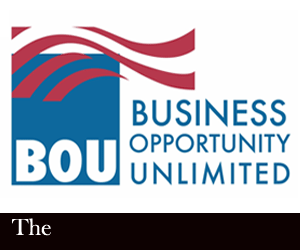
Business franchising is one of the safest and most risk-free ways to start up and run a successful business.
However running a franchise isn’t for everyone, so take time to understand what running a franchise entails – especially the selling aspects – before you decide to buy a franchise business.
Business franchises and franchising opportunities are increasing internationally. This is because the business franchising formula and the franchising model is proven and successful.
Here are the essential tips for identifying and selecting the best business franchise opportunities for yourself, whether you want a small local business, or a very big franchise business.
choose a franchise business that you’ll enjoy
Buying a franchise that you will enjoy is the most important factor of all. Most businesses – all types of business, not just franchises – succeed when the owner truly enjoys the products and/or services
that the business supplies. If you really enjoy and are interested in the products and services, and the customers and markets, then you will learn and gather information and skills rapidly. If you enjoy the business it is likely that you will possess a good deal of knowledge about it already. Being an expert and a specialist at what you do is essential to running any successful business – enjoyment and expertise naturally go hand-in-hand. You will find it easy to specialise and become an expert in an area that you enjoy quite simply because it is a pleasure and a joy – not a chore. When you work in a service or product area that you love, you will enthuse about it, and your enthusiasm will be conveyed to your customers and everyone you meet. People like to deal with enthusiastic suppliers – people who love their work. When you enjoy the subject of your franchise business you will naturally put in more effort than if you worked in a field that fails to inspire and excite you. People who love their work always work hard and put in more hours. Their work becomes part of their life, rather than it being just a means to pay for their living costs.
research the best franchises
There are thousands of different business franchises, and there will be more than one and perhaps many in your chosen business area. Once you have made the decision to buy a franchise business it is difficult to turn back. A wrong decision takes a few seconds to make, and for some, a lifetime to put right. So do your research. Look at the alternatives. Ask existing franchisees. Ask customers. Ask bank managers. Read the franchise trade magazines, newspapers, websites. Attend franchising exhibitions. Seek the advice and opinions of friends. Do some local market research to gauge demand for the products and services, to test the reputation of the franchising companies, and to test their claims about pricing and any other relevant business claims or information you’ve been given. Become an expert before you sign the papers – don’t wait to learn about the ‘unknowns’ after signing the contract and parting with your cash.
These days information is easy to find – don’t be shy – look for it – ask and satisfy all of your concerns before you make your decision.
trust your instincts
When you buy a business franchise of any sort you are entering into a business partnership, in which your relationship with the franchisor (or ‘principle’), and their people, will be absolutely crucial to your success. You must be able to trust and work with the franchisor and the franchise company’s staff – especially the directors and senior managers. If you have the slightest doubt as to the integrity of any of the people within the franchising company think extremely carefully before you go ahead with them. Trust your instincts – if you feel uncomfortable during the selection and recruitment stage it is likely that there are grounds for concern. Feeling uncomfortable about trust and relationships may not necessarily mean that the franchisor is untrustworthy, but it does probably mean that the ‘fit’ may not be right for you. Relationships are personal things – some people you’ll get on with and see eye to eye with; others you may not. You will be more likely to succeed, and receive a good level of appropriate support, if there is a good emotional ‘fit’ with the franchisor. Trust your instincts to tell you whether the franchising company has a similar value system and ethos to your own. If you value the customer above all else, do they too? If they do not then they may not be fully in tune with your style and business philosophy. Finding a good emotional and philosophical match with your chosen franchising company is almost as important as choosing the right sort of business. Given sympathetic and genuinely relevant support we can achieve almost anything – be sure that your franchise partner will be able to provide it.
look for a good business profit model
Successful businesses – not just franchises – are always based on a sound and healthy business and profit model. Most franchises tend to have this, or they can’t operate, but check the extent and sustainability of the financial model. The better the profit model then generally the easier it is to start up, run and maintain a successful business.
New innovative products and services with protected technology and new growing markets make ideal franchise businesses. This is because demand exceeds supply, which enables price levels to be maintained, and the protected technology limits the effect of competition.
Businesses with strong brand names and reputations also tend to have stronger financial models. This is because customers are prepared to pay a higher price, and will more often say yes, to receive a trusted product or service.
Mature products and services tend to have less strong financial models. This is because time has enabled competition to develop – alternative products, services, technologies and suppliers. Maybe routes to market are no longer appropriate for franchise business operators. Would you take a local door-to-door book or CD franchise given the dominance of the huge online distribution businesses? Not likely. If there is a better and more cost effective route to market than through a franchise business it is likely that the financial and profit model of the franchise in question is under pressure.
Seek out franchises with modern technology, innovative protected products and services, a strong brand and reputation, with growing markets, where the route to market favours the franchising business model. These opportunities will almost certainly be the ones which offer the strongest and best profitability.
look for high integrity propositions and franchisors
High integrity is essential for two crucial reasons:
You will keep your peace of mind, and sleep at night. The world is full of miserable millionaires – people who have exploited others to make their money – don’t be seduced by this false dream. Always behaving and deciding with high integrity will keep you safe, well, and probably make you wealthier too.
You will delight your customers and good word will spread, which is vital for local service businesses, which nearly all franchise businesses are. Local businesses live or die by their reputations. Behaving with high integrity will automatically ensure that your reputation shines and grows. Many well established successful franchisees never need to advertise or look for their next customers – their customers find them.
If you buy a franchise that lacks integrity, then with all the best will in the world, you will be pushing water uphill.
Look for and buy a franchise which has high integrity at the centre of its products, services and business ethos, and you are half way to running a high integrity franchise business – all that remains is for you to ensure that your own input and activity are high integrity too.
understand the financials
You don’t need to be Gordon Gekko, but you do need to understand the essential things:
What is the level of investment and what do you get for it – is it good value? Or is it all smoke and mirrors?
How long will it take you to recover your investment – in other words what is the payback period – how quickly will the franchise realistically and reliably get into profit? This is a crucial indicator, and one which you must understand and be assured that it is acceptable and achievable before you buy any franchise.
What are the running costs of the franchise? – Some will be fixed overheads, (such as vehicle lease repayments, plant and tools, franchise fixed repeating fees, your wages, other staff wages, premises and heating, etc) some will be variable ‘cost of sales’ dependent on your sales levels and volumes (such as materials and additional labour, possibly fuel etc); and some will be other variable costs necessary to promote and expand the business (such as advertising, printed materials, training, etc). Get a clear idea of what these costs are. Be able to see and understand them over a year, broken down month to month.
What working capital will you need? – This is the amount of money required for the business running costs, including your own salary(ies), before the business begins to make a profit necessary to fund itself and your wages.
What borrowing or loan arrangements are required, and can you afford the repayments, given the working capital requirements of the new business, and the rate of expected business and profit growth?
What alternative borrowing or loan arrangements are available – look around – negotiate hard. If you do not ask you will not get. No back manager will offer you their best possible rate until or unless they feel they have to. Have an alternative – play one lender against the other. The most important rule of any negotiation is having an alternative – being able to walk away. This applies also to when you come to buy the franchise itself – sometimes there is room for negotiation. Again, if you don’t ask you won’t get. Buying a franchise can become like buying a house – if you get your heart too set on one single option then you have exactly that – just one option; and no room to negotiate. If you find two options you immediately increase your power in the discussions, and you will feel more liberated in your decision-making too. Understanding the relative financials is an important aspect of comparing franchise opportunities. Work at using the key financial figures and indicators and you will quickly become accustomed to making these judgements, which in turn will make you stronger in your discussions and negotiating before buying your franchise.
understand the meaning of contracts
The business contracts that are signed by the franchisees and franchisors represent the agreement and terms of trading between the two parties. The contract terms and conditions (the T&C) over-ride and supercede any other agreements you think you’ve made, or things you believe you have been promised. What is written in black and white, and signed by both parties, is the agreement you have made. Nothing else matters – so take time to understand this part of the process, and question anything that you don’t like. It is no use in a subsequent dispute or misunderstanding to refer to a discussion or verbal commitment. If it ain’t in writing and signed, then it ain’t any use to you. So whatever you do, and however good your instincts are – read and understand the contract.
If you understand the contract you will achieve far greater control over your legal advisors (whose fees can escalate considerably when clients fail to understand what’s going on), and also greater control over the other side and their advisors, and you will generally be able to negotiate a much more advantageous outcome.
You don’t need to become a lawyer – just understand what the contract means – you’ll be surprised how easy it is if you take a bit of time to learn.
To help you – see the free guide to understanding business contracts and legal terms.
buying a franchise
The following information about selecting and buying a franchise business is provided by Business Link, which is gratefully acknowledged. While the information is essentially for the UK franchising market the principles are generic, sensible, and transferable to anywhere. The material is subject to Crown copyright. For further information visit the Business Link website.
Taking on a franchise is an option worth considering for anyone who wants to run a business but doesn’t have a specific idea or prefers the security provided by an established concept.
The right franchise can give you a head start. Instead of setting up a business from scratch, you use a proven business idea. Typically, you trade under the brand name of the company offering you the franchise, giving you help and support.
Successful franchises have a much lower failure rate than completely new businesses. But it isn’t all plain sailing. Some franchises are better than others. And some people find that running a franchise just isn’t for them.
This guide will help you decide whether franchising is for you. It shows how you can find the right franchise, and highlights the key issues you need to consider.
what is franchising?
The term franchising can describe some very different business arrangements. It is important to understand exactly what you’re being offered.
‘business format’ franchise
This is the most common form of franchising. A true business format franchise occurs when the owner of a business (the franchisor) grants a licence to another person or business (the franchisee) to use its business idea – often in a specific geographical area.
The franchisee sells the franchisor’s product or services, trades under the franchisor’s trade mark or trade name and benefits from the franchisor’s help and support.
In return, the franchisee usually pays an initial fee to the franchisor and then a percentage royalty on sales, although some franchising arrangements do not include a royalty payment.
The franchisee owns the outlet it runs. But the franchisor keeps control over how products are marketed and sold and how their business idea is used.
Many well-known businesses offer franchises of this kind, including famous brands in sectors such as fast food, drain clearance, print and copying, cleaning chemicals, pet food deliveries, and automotive repairs.
other types of sales
Different types of sales relationships are also sometimes referred to as franchises. For example:
Distributorship and dealership – you sell the product but don’t usually trade under the franchise name. You have more freedom over how you run the business.
Agency – you sell goods or services on behalf of the supplier.
Licensee – you have a licence giving you the right to make and sell the licensor’s product. There are usually no extra restrictions on how you run your business.
a word about multi-level marketing
Some businesses offer ‘franchises’ that are really multi-level marketing. It is fair to call many of these businesses ‘pyramid schemes’. Self-employed distributors sell goods on a manufacturer’s behalf. You get commission on any sales you make, and also on sales made by other agents you recruit. However many of these multi-level marketing organizations do not represent the proper spirit of franchising: many do not give good support, many are based on poor-integrity business models, and some multi-level marketing schemes are downright dishonest and illegal. So be warned.
advantages and disadvantages of franchising
Buying a franchise can be a quick way to set up your own business without starting from scratch. But there are also a number of drawbacks.
advantages
Your business is based on a proven idea. You can check how successful other franchises are before committing yourself.
You can use a recognised brand name and trade marks. You benefit from any advertising or promotion by the owner of the franchise – the “franchisor”.
The franchisor gives you support – usually including training, help setting up the business, a manual telling you how to run the business and ongoing advice.
You usually have exclusive rights in your territory. The franchisor won’t sell any other franchises in the same region, though there will be competition from other businesses.
Financing the business may be easier. Banks are sometimes more likely to lend money to a franchise with a good reputation.
Risk is reduced and is shared by the franchisor.
disadvantages
Costs may be higher than you expect. As well as the initial costs of buying the franchise, you pay continuing royalties and you may have to agree to buy products from the franchisor.
The franchise agreement usually includes restrictions on how you run the business. You might not be able to make changes to suit your local market.
The franchisor might go out of business, or change the way they do things.
Other franchisees could give the brand a bad reputation.
You may find it difficult to sell your franchise – you can only sell it to someone approved by the franchisor.
Reduced risk means you might not generate vast profits.






























 +91 9909960054
+91 9909960054